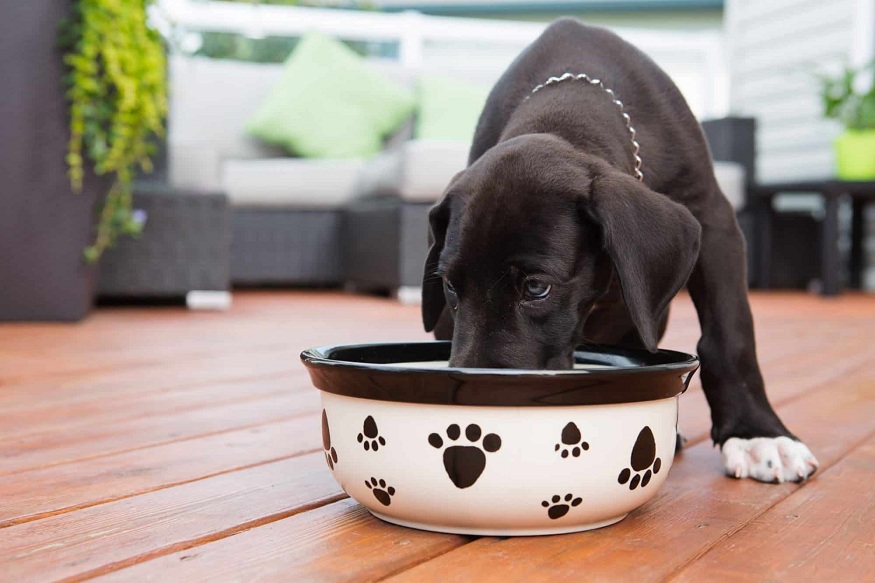Building a healthy and enduring relationship with your pet is about much more than simply providing them with food and shelter. It’s about connecting on a deeper level, understanding each other’s needs, and creating an environment that allows both pet and owner to thrive together. This journey of companionship is embellished with small victories.
Cultivating a Bond with Your Furry Friend
Sometimes, it’s a wagging tail after a long day; other times, it’s the joy of discovering a cost-saving promo code for high-quality pet supplies. However, to truly enrich the lives of our animal friends, it’s essential to consider all avenues of care and connection. The foundation of a healthy relationship with your pet is built upon trust and affection. Developing a strong bond requires time, consistency, and patience. Spending time with your pet, engaging in play, or simply being in their presence helps foster a feeling of comfort and security. Understanding their personality and preferences allows for a more personalized approach to care. For example, some pets may prefer a quiet evening cuddle, while others might want an energetic game of fetch. Observing their reactions and adapting to their needs is pivotal in building mutual trust and a sense of partnership that lasts a lifetime.
Feeding: Nutrition and Its Effects on Pet Behavior
Nutrition is a cornerstone of pet health and substantially impacts their wellbeing. The right balance of proteins, fats, carbohydrates, and necessary vitamins and minerals can promote a healthy immune system and a vibrant coat. High-quality food can reduce the risk of chronic diseases and aid in maintaining a healthy weight, contributing to more balanced energy levels and temperament. When well-nourished, pets are likelier to be happy, calm, and responsive. An appropriate diet tailored to the pet’s age, size, and activity level supports their physical health and mental and emotional stability.
Training and Mental Stimulation
An engaged pet is happy, and training provides much-needed mental stimulation. By teaching your fur-friend various commands and tricks, you hone their cognitive functions and promote better behavior. Regular, consistent training sessions also serve as an excellent opportunity for pets to understand expectations and for owners to understand their pets’ learning styles. Positive reinforcement training strengthens the bond between pet and owner, based on mutual respect and reward for good behavior. An enriched environment with puzzles and toys also keeps your pet’s mind active, helping to prevent boredom and potentially destructive behavior.
Regular Exercise: Physical Health and Its Impact
Exercise is a critical component of any pet’s health regimen. Regular physical activity keeps your pet agile and helps to prevent conditions like obesity, heart disease, and arthritis. It also serves as an essential outlet for your pet’s energy, potentially curbing destructive behaviors from boredom or excess energy. Dogs, in particular, benefit significantly from daily walks, not only for the physical exercise but also for the sensory stimulation they encounter outside. Cats can be encouraged to move more with interactive toys or even leash training. Exercise sessions are a bonding experience that reinforces your relationship – it’s when your pet learns they can rely on you for fun and engagement.
Healthcare: The Importance of Preventative Care
Preventative care is the first defense in maintaining your pet’s health. Regular check-ups allow veterinarians to assess your pet’s overall condition and identify any early signs of health issues. Vaccinations, routine deworming, flea and tick control, and dental care are all vital components of preventative healthcare. By staying up-to-date with your pet’s medical needs, you extend their lifespan and significantly improve its quality. This proactive approach to pet health demonstrates commitment and love, reassuring your pet that you are invested in their welfare.
Socialization and Its Role in Pet Behavior
Socialization involves exposing your pet to various experiences, environments, animals, and people during their formative stages of life. Proper socialization can significantly influence a pet’s behavior, reducing fear and aggression and promoting friendliness. Introducing your pet to new things in a controlled and positive way teaches them to handle new experiences confidently. Well-socialized pets are less stressed in unfamiliar situations, meaning fewer behavioral problems and a more relaxed pet. It’s also easier to take them to public places, travel with them, and involve them in family activities when they are accustomed to diverse environments and situations.
Understanding the Language of Your Pet
Pets express themselves uniquely; deciphering these cues is essential for a responsive and sensitive relationship. This non-verbal communication can be subtle—such as a cat’s twitching tail or a dog’s yawn—and understanding these signals allows us to respond more effectively to their feelings and needs. A wise owner can distinguish between a playful bark and a scared one or recognize the signs of stress in a pet’s posture or eyes. This deepened understanding facilitates a respectful dialogue between pet and owner, where needs are identified and companionship is strengthened.
Crafting Safe and Comfortable Environments
A pet’s environment impacts their health and happiness significantly. Creating a pet-friendly space that accommodates their needs for play, rest, and exploration keeps them stimulated and content. For indoor pets, their dedicated sleeping area with comfortable bedding, toys, and a safe place to retreat when they need solitude is essential for their wellbeing. For pets that spend time outdoors, it’s vital to ensure that yards or outdoor enclosures are secure and free from hazards that could cause injury. A pet that feels safe in its environment is more likely to exhibit balanced behavior and form a positive association with its home and humans.
Responsible Ownership and Community Respect
Pet ownership comes with responsibilities—both to the pet and the community. It’s crucial to be mindful of others regarding your pet’s behavior. Ensuring your pet is trained to behave well in public, picking up after them, and keeping them on a leash in shared spaces are just a few examples of considerate pet ownership. By doing so, pet owners contribute positively to the public perception of pet ownership and ensure that the rights and comforts of others are not infringed upon.
Dealing with Behavioral Issues Compassionately
Even with the best care and training, pets can develop behavioral issues. It’s crucial to address these issues with understanding rather than punishment. Seeking the advice of a professional may be necessary for more severe cases. This could mean consulting with trainers who use humane training methods or veterinarians who can provide medical interventions when behavioral changes have an underlying health cause. Being open to learning and adapting strategies to support your pet through these challenges reinforces your bond, showcasing a commitment to their wellbeing and growth.
To gather further insights into the importance of proper nutrition in a pet’s diet and behavior, take a moment to review the dedicated article from the ASPCA. For those seeking to gain a more thorough understanding of their pet’s behavior and effective communication, more valuable information can be found at the American Kennel Club.


